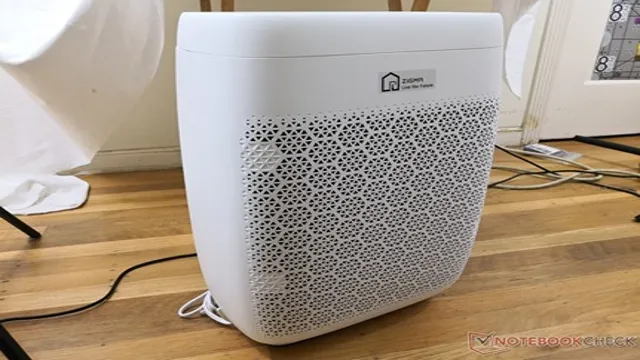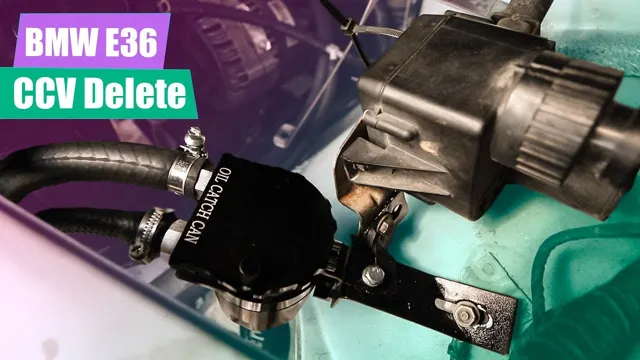When it comes to our home’s safety, nothing is more important than protecting it from fires. And while we may think we’re doing everything in our power to prevent fires from occurring, there may be some less obvious risks that we’re not aware of. One of the most significant and often overlooked causes of house fires is our air conditioning systems.
Yes, you read that right – your AC unit could potentially be putting you and your home in danger. In this blog post, we’ll explore the risks associated with AC units and how you can ensure your system is not putting your home at risk. So buckle up, and let’s dive into the potential AC fire risks you may not have known about.
Electrical Issues
When it comes to electrical issues, safety should always be paramount. One question that often comes up is whether or not an AC unit can catch fire. The short answer is that it’s possible, though unlikely.
AC fires are typically caused by electrical issues, such as faulty wiring or an overloaded circuit. Regular maintenance and inspections can help prevent these issues from occurring. Additionally, it’s important to make sure that your AC unit is properly installed and that any modifications or repairs are performed by a licensed professional.
So while the risk of an AC fire may be small, it’s still important to take proper precautions to ensure the safety of your home and family.
Short circuits and overloading
Short circuits and overloading can pose serious risks to both people and appliances. When an electrical circuit experiences a short circuit or overloading, it can cause a huge amount of electrical current to flow through the wires, which can generate extreme heat and damage the wiring and connected appliances. In the worst-case scenario, it can even cause an electrical fire.
Short circuits occur when a live wire comes into contact with a neutral wire, while overloading happens when too much current is drawn through a single circuit. This issue can be prevented by ensuring that all electrical appliances are properly rated, and by not plugging too many devices into a single outlet or circuit. It’s important to be mindful of electrical safety and to take the necessary precautions to avoid short circuits and overloading in a home or workplace.
Always remember to switch off any appliance or device when it’s not in use and when leaving the premises.

Old wiring and faulty components
Old wiring and faulty components can be a serious electrical issue in any building, from residential homes to commercial offices. Over time, wiring can degrade and become frayed, leading to potential shorts or electrical fires. Faulty components, such as outdated circuit breakers or overloaded outlets, can also pose a risk.
It’s essential to have a professional electrician inspect your building’s wiring and components regularly to identify any potential problems before they become hazardous. Ignoring these issues can lead to costly damage or even put lives at risk. It’s important to address these problems immediately, just as one would fix a leaky faucet or a broken window.
By taking care of these issues promptly, you can protect your property and ensure the safety of everyone who uses it. Take control of your electrical system and ensure it’s safe and up to code with the help of an expert electrician.
Flammable Materials
If you’re wondering whether your AC can catch fire, the answer is yes, it’s possible. However, it’s important to note that it’s not typical for an AC unit to spontaneously combust. In most cases, fires involving AC units happen as a result of a combination of factors.
For example, if your AC unit is located near flammable materials such as paper or fabric, or if there’s an electrical malfunction or a short circuit, the risk of a fire increases. It’s also essential to have your AC unit serviced regularly by a professional to make sure it’s working correctly and not at risk of a fire. In short, while it’s possible for an AC unit to catch fire, taking simple preventive measures can significantly reduce the chances of it happening.
Blocked vents and filters
Blocked vents and filters can be a serious issue when it comes to household fires caused by flammable materials. It’s important to understand that everything from dryer vents to furnace filters can become clogged over time, leading to a buildup of lint, dust and other debris. While this might seem like a minor inconvenience, it can actually increase the risk of fire significantly.
If you’re not sure whether your vents and filters are blocked, it’s a good idea to have them inspected by a professional. They’ll be able to identify any potential issues and make sure that your home is safe from fire hazards. When it comes to flammable materials, it’s important to take every precaution possible to ensure that they’re stored and used safely.
This means keeping them away from any heat sources and making sure that they’re properly labeled and stored in their original containers. But even with these precautions in place, there’s still the risk of a fire starting due to blocked vents and filters. That’s why it’s so important to keep these parts of your home in good condition and to have them inspected regularly.
By doing so, you can reduce your risk of a house fire significantly and keep your family safe.
Chemical cleaners and solvents nearby
Flammable materials can pose a serious threat in any workplace or home where chemical cleaners and solvents are used. These materials are highly combustible and can ignite under certain conditions. It’s important that these materials are stored properly, away from open flames, heat sources, and sparks.
Flammable materials include gasoline, alcohol, propane, and some cleaning agents. They can easily cause fires or explosions if not handled with caution. To minimize the risks of accidents, it’s important to follow safety protocols and use protective gear when working with these materials.
For instance, avoid smoking or using open flames around flammable materials, as they can ignite and cause a fire. Additionally, make sure to properly ventilate the area where these materials are being used to avoid inhaling toxic fumes. In conclusion, flammable materials are a potential hazard that can lead to devastating consequences if not properly handled.
Therefore, it is vital to ensure that they are stored in a safe place and handled with care. By following the guidelines and safety protocols, we can prevent accidents and ensure a safer working environment.
Fuel leaks from nearby appliances
One of the biggest concerns regarding fuel leaks from nearby appliances is the presence of flammable materials. These materials can ignite quickly and cause significant harm to both property and people. It’s crucial to keep flammable materials, such as paper products, gasoline, and cleaning supplies, far away from any potential sources of fuel leaks.
Regularly inspecting appliances, such as water heaters and furnaces, for signs of wear and tear can also help prevent fuel leaks from occurring and minimize the risk of fire. While it’s impossible to completely eliminate the possibility of a fuel leak, taking these proactive steps can help ensure that everyone stays safe. Remember, safety always comes first, so never take any chances with the potential for fuel leaks and flammable materials.
Preventive Measures
There is a possibility that AC can catch fire if proper care is not taken. However, there are certain preventive measures that can be taken to avoid such scenarios. The first and foremost step is to get your AC unit serviced regularly.
This not only increases the lifespan of your AC but also reduces the risk of fire. Keep your outdoor unit clean and debris-free to prevent any blockages that could cause overheating. Make sure the air filters are clean and changed regularly.
When installing or repairing the AC system, ensure that it is done by a professional who is experienced in handling electrical appliances. Additionally, always turn off the AC when not in use and do not overload the electrical circuit by plugging multiple devices into one outlet. By following these simple preventive measures, you can significantly decrease the chances of your AC catching fire and ensure the safety of your family and home.
Regular maintenance and cleaning
Regular maintenance and cleaning are important for various reasons. By taking preventive measures, you ensure that your equipment lasts longer and runs smoothly. Simple tasks such as cleaning filters, changing oil, and inspecting belts can make a great deal of difference.
Not only will regular maintenance save you money in the long run, but it also reduces the risk of costly repairs and replacements. As an analogy, think of your car’s regular oil change. You wouldn’t wait until your engine breaks down to get it serviced, would you? Similarly, your appliances and equipment need to be regularly taken care of to prevent issues from developing.
By doing so, you can avoid having to buy a new air conditioner, refrigerator, or washing machine sooner than expected. So, ensure that you take the time to clean and maintain your equipment regularly, and you’ll reap the benefits in the long run.
Keeping flammable materials away
When it comes to preventing fires, one of the best things you can do is to keep flammable materials away from heat sources. Whether it’s gasoline, cooking oil, or paper products, these items can easily catch fire if they come into contact with a flame or spark. To avoid this danger, it’s important to properly store and dispose of these items.
Keep them in a cool, dry place away from any sources of heat or flame, and make sure to properly label them so that they’re easy to identify. Additionally, it’s a good idea to regularly inspect your home and workplace for any potential fire hazards, such as overloaded electrical outlets or faulty wiring. By taking these preventive measures, you can greatly reduce the risk of a fire starting and potentially causing serious damage.
Conclusion
So, can AC catch fire? The answer is yes, but it’s not very common. Like any electrical appliance, AC units have the potential to cause fires if they malfunction or are not properly maintained. But fear not, with regular maintenance and proper usage, the likelihood of your AC unit turning into a flaming inferno is very small.
So, keep cool and enjoy the refreshing breeze of your air conditioner, just be sure to keep an eye on it and call for professional help if anything seems amiss. Stay chill, folks!”
FAQs
How does an AC catch fire?
ACs can catch fire due to a malfunction in the electrical components or a buildup of dust and debris in the system.
What are the warning signs that an AC may catch fire?
Warning signs include a burning smell, smoke coming from the unit, or unusual noises coming from the compressor.
How can I prevent my AC from catching fire?
Regular maintenance, such as cleaning or replacing air filters, can reduce the risk of fire. It is also important to have a professional inspect and service your AC at least once a year.
What types of AC units are most susceptible to catching fire?
Portable or window AC units have a higher risk of catching fire due to their smaller size and potential for overheating. However, any AC unit can catch fire if not properly maintained.

